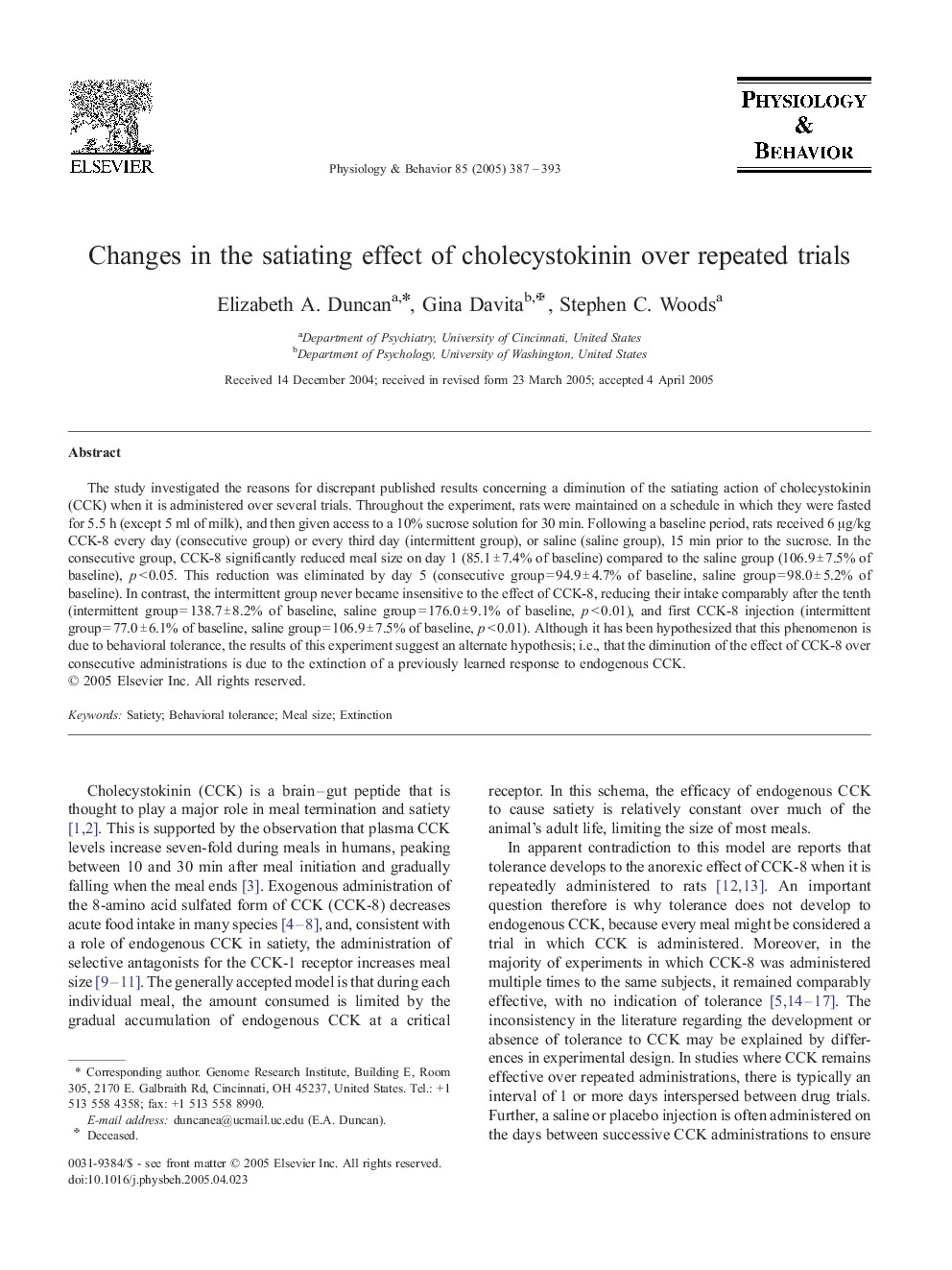| Article ID | Journal | Published Year | Pages | File Type |
|---|---|---|---|---|
| 9149781 | Physiology & Behavior | 2005 | 7 Pages |
Abstract
The study investigated the reasons for discrepant published results concerning a diminution of the satiating action of cholecystokinin (CCK) when it is administered over several trials. Throughout the experiment, rats were maintained on a schedule in which they were fasted for 5.5 h (except 5 ml of milk), and then given access to a 10% sucrose solution for 30 min. Following a baseline period, rats received 6 μg/kg CCK-8 every day (consecutive group) or every third day (intermittent group), or saline (saline group), 15 min prior to the sucrose. In the consecutive group, CCK-8 significantly reduced meal size on day 1 (85.1 ± 7.4% of baseline) compared to the saline group (106.9 ± 7.5% of baseline), p < 0.05. This reduction was eliminated by day 5 (consecutive group = 94.9 ± 4.7% of baseline, saline group = 98.0 ± 5.2% of baseline). In contrast, the intermittent group never became insensitive to the effect of CCK-8, reducing their intake comparably after the tenth (intermittent group = 138.7 ± 8.2% of baseline, saline group = 176.0 ± 9.1% of baseline, p < 0.01), and first CCK-8 injection (intermittent group = 77.0 ± 6.1% of baseline, saline group = 106.9 ± 7.5% of baseline, p < 0.01). Although it has been hypothesized that this phenomenon is due to behavioral tolerance, the results of this experiment suggest an alternate hypothesis; i.e., that the diminution of the effect of CCK-8 over consecutive administrations is due to the extinction of a previously learned response to endogenous CCK.
Related Topics
Life Sciences
Biochemistry, Genetics and Molecular Biology
Physiology
Authors
Elizabeth A. Duncan, Gina Davita, Stephen C. Woods,
